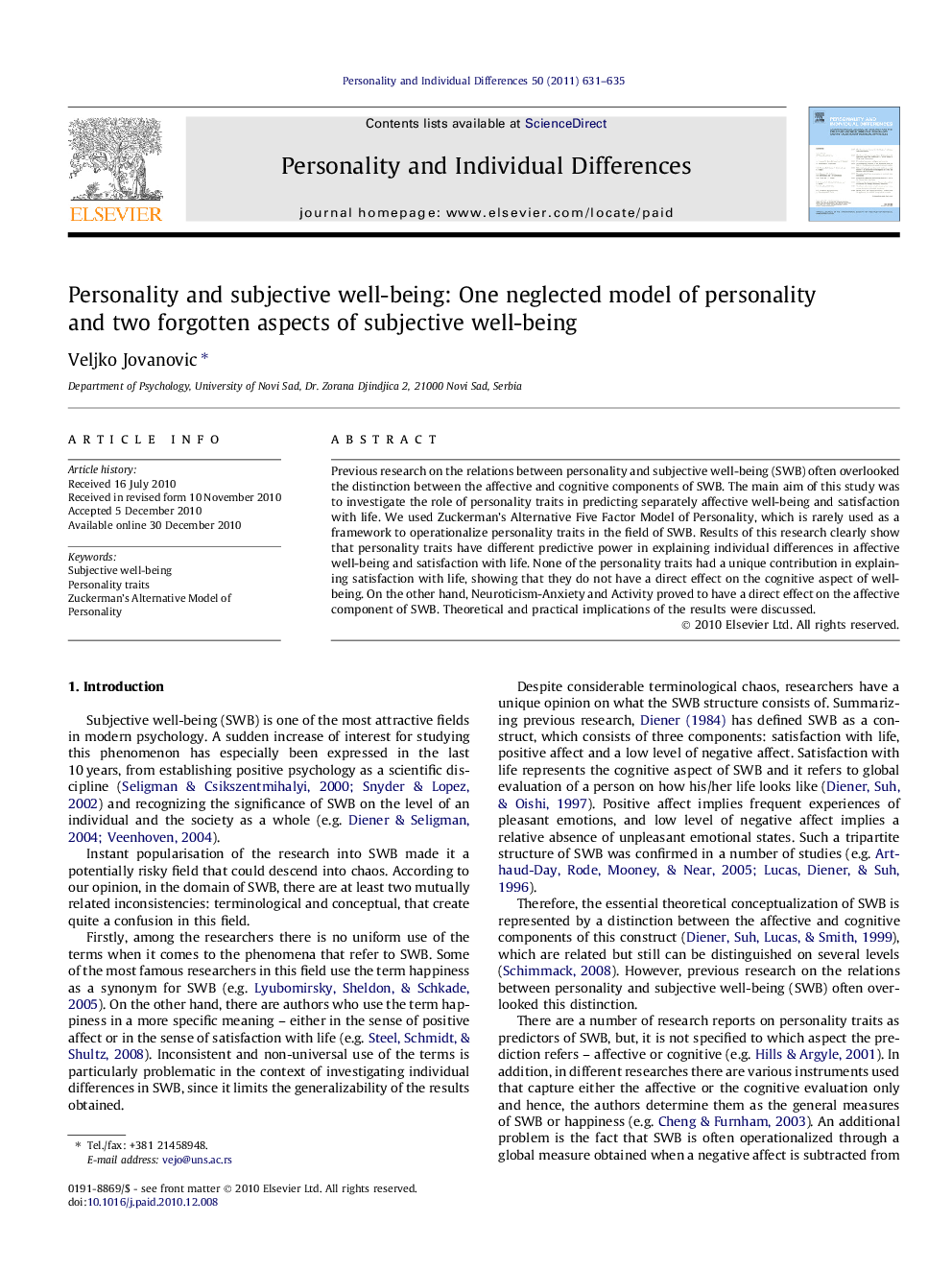| Article ID | Journal | Published Year | Pages | File Type |
|---|---|---|---|---|
| 891650 | Personality and Individual Differences | 2011 | 5 Pages |
Previous research on the relations between personality and subjective well-being (SWB) often overlooked the distinction between the affective and cognitive components of SWB. The main aim of this study was to investigate the role of personality traits in predicting separately affective well-being and satisfaction with life. We used Zuckerman’s Alternative Five Factor Model of Personality, which is rarely used as a framework to operationalize personality traits in the field of SWB. Results of this research clearly show that personality traits have different predictive power in explaining individual differences in affective well-being and satisfaction with life. None of the personality traits had a unique contribution in explaining satisfaction with life, showing that they do not have a direct effect on the cognitive aspect of well-being. On the other hand, Neuroticism-Anxiety and Activity proved to have a direct effect on the affective component of SWB. Theoretical and practical implications of the results were discussed.
